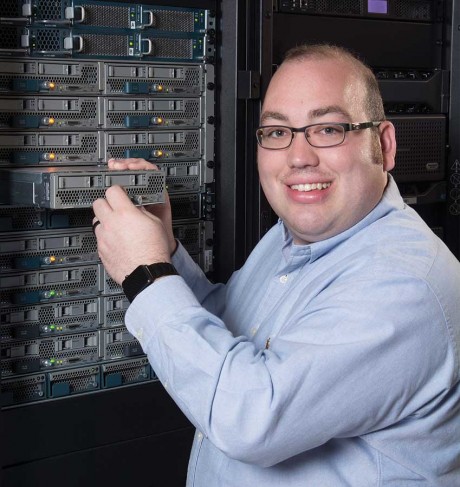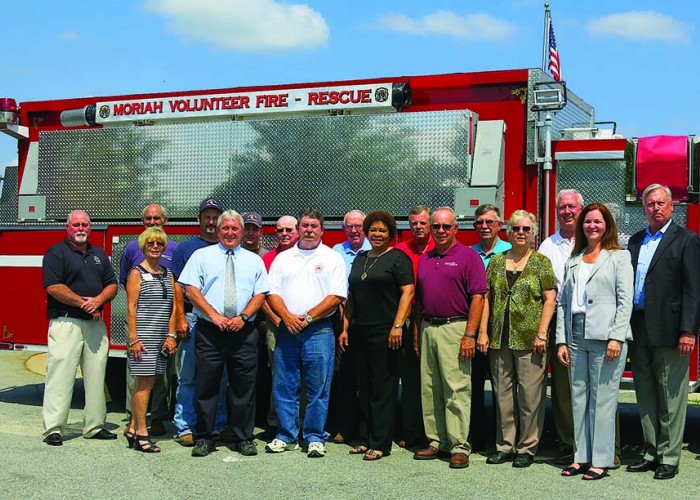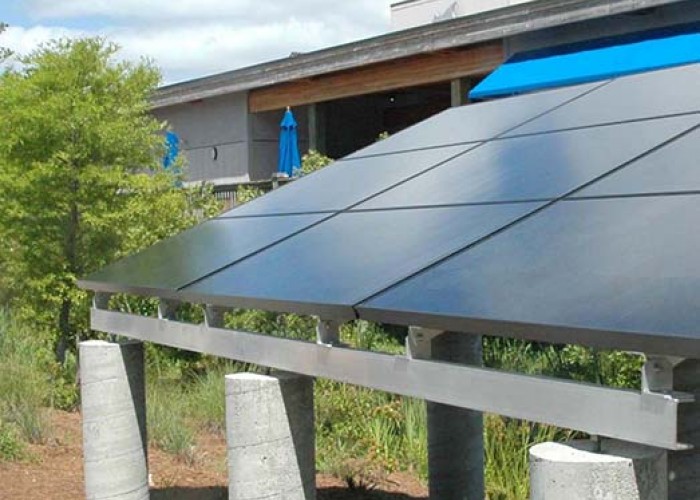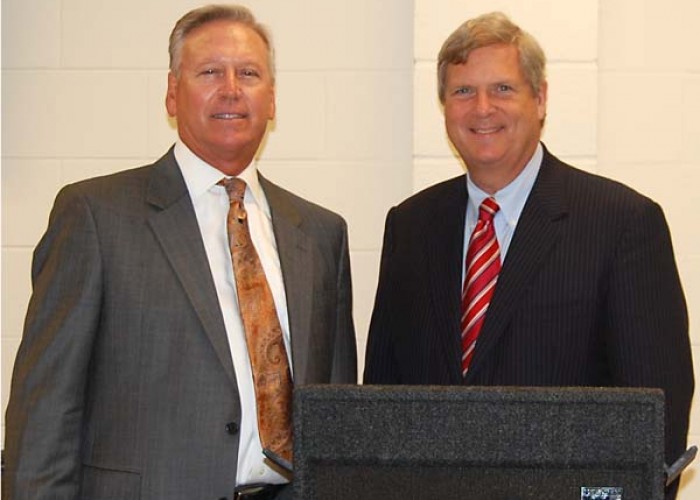Cutting-Edge Co-op Jobs Power the Economy
Electric co-ops are a means to entering a high-tech workforce
By Paul WesslundIf you want to work where the action is, how about a job in the fastest-growing occupation in America?
The electric power industry supports more than 7 million jobs in the U.S., according to a new report sponsored by the National Rural Electric Cooperative Association (NRECA) and two other national utility groups, the American Public Power Association and the Edison Electric Institute. The industry ultimately contributes an estimated $880 billion to the national economy.
“Electricity is the backbone of our economy and is crucial to our national security,” according to the report, titled Powering America: The Economic Workforce Contributions of the U.S. Electric Power Industry. “Our high-tech society demands electricity to power or charge nearly every new product or technology that comes to market.”
Blue Ridge Energy Network Security Engineer Phil Crump was highlighted in the report as an example of those in the industry taking cyber security measures to protect the grid and safeguard critical infrastructure.
“Serving our members is also about protecting their information and safeguarding our servers and system against security breaches,” Crump said in the report. “Hackers work overtime to disrupt the grid and steal personal identities and financial information. We all work diligently to protect the thousands of members of our community. Really, we view every single one of those members as part of one big Blue Ridge family. And when you look at it that way, we don’t need any extra motivation to safeguard our grid, along with our members’ information.”
Impressive employment numbers
The utility industry is the most capital-intensive economic sector, investing more than $100 million a year on the nation’s electricity infrastructure with advances in technology, environmental protections and other improvements — in addition to money spent on regular operations and maintenance.
Of the more than 7 million jobs created as a result, more than 2.6 million result from direct employment, like utility employees and contractors. As all those people go to work and live their lives, they create another 4.4 million “induced jobs”— teachers, doctors, real estate agents and service workers.
The U.S. Department of Energy slices and dices those numbers a different way, shedding a little more light on renewable energy jobs, as well as careers in energy efficiency, mining and transportation.
“America’s labor markets are being revitalized by our new energy and transportation technologies,” DOE said.
DOE lists solar energy jobs as the largest share of people working on all types of electricity generation. Almost 374,000 people are working in solar power — 43 percent of the electricity generation workforce. Wind power employs about 100,000 people.
Those renewable energy jobs are in addition to a raft of other careers in energy, from mining, to energy efficiency, power plant operators, and social media and cyber security specialists.
Co-op opportunities
Electric cooperatives provide a particularly timely means to entering the cutting-edge electric utility workforce, says Michelle Rostom, NRECA director of workforce development.
“There are a lot of great opportunities at co-ops,” Rostom said, noting that electric co-ops expect to hire as many as 25,000 new employees in the next five years. “Electric co-ops are doing a lot of research on integrating solar power and wind with coal and other cutting-edge solutions. There are opportunities to be part of the next generation of the energy industry.”
Part of the reason more jobs are becoming available is that baby boomers are retiring — 6,000 co-op employees retired last year, according to NRECA. Other parts of the energy industry went through that wave of retirements several years ago, but it’s just catching up with electric co-ops, according to Rostom.
“People stay at the co-op for so long because they’re great jobs, with interesting work, a chance to grow professionally in a lot of different areas and they have a strong connection with their local communities,” she said.
Electric cooperatives see military veterans as part of the solution: Another part of Rostom’s job is coordinator of NRECA’s Serve Our Co-ops, Serve Our Country veterans hiring initiative (see “Cooperatives and Veterans: A Winning Combination” on page 4).
“Veterans have always been a core part of our co-op workforce, and this program creates additional intent to hire more veterans,” she said. “There are a lot of parallels between the military and cooperative principles, like teamwork, autonomy, independence and community.”
About the Author
Paul Wesslund writes on cooperative issues for NRECA, the Arlington, Va.-based service arm of the nation’s 900-plus consumer-owned, not-for-profit electric cooperatives.-
Cooperative Jobs
-
Share this story:






